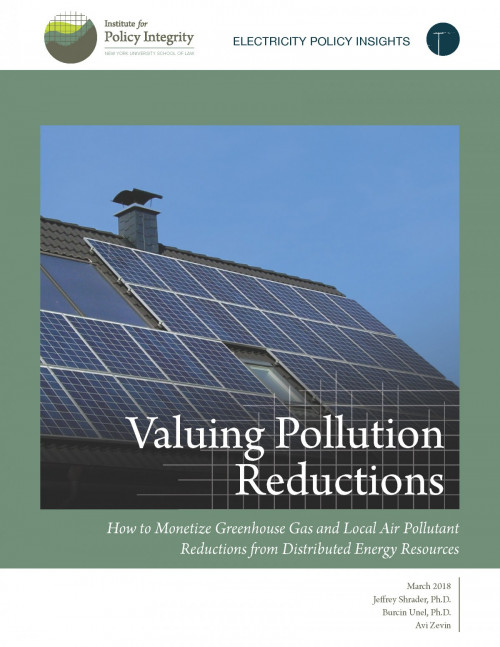Distributed energy resources (DERs)—grid-connected, small-scale electric generators such as rooftop solar installations, micro-turbines, combined heat and power systems, customer backup generators, and distributed energy storage systems—are a growing part of the U.S. electric system. They can help avoid the high levels of greenhouse gases and local air pollution produced by traditional energy sources. As their use grows, state electric utility regulators are seeking to compensate DERs accurately for the benefits they offer, including reductions in pollution that contributes to climate change and harms human health.
This report shows how regulators can calculate the types and amount of pollution avoided, and then monetize these benefits for use in policy. This flexible blueprint allows states to consider tradeoffs between accuracy and ease of administration, pick the tools that are most accurate given the tradeoffs, and update their methods when feasible. This methodology would allow utility regulators to implement technology-neutral policies that incentivize DERs when and where they are most beneficial to society.

